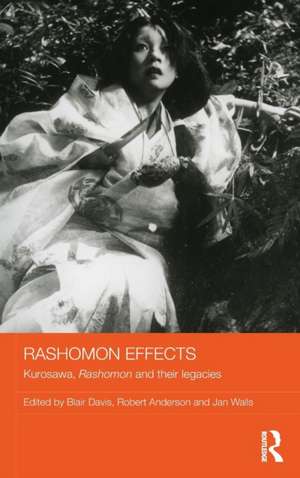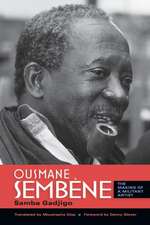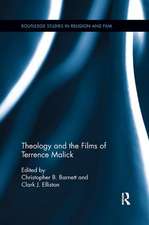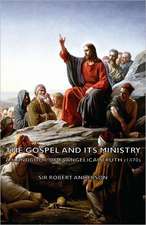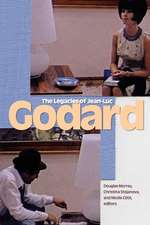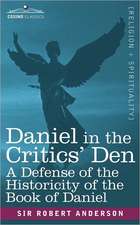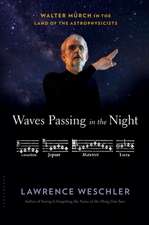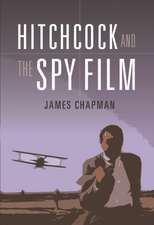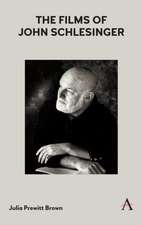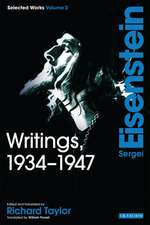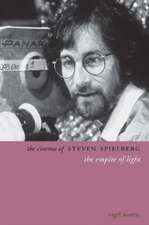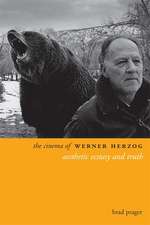Rashomon Effects: Kurosawa, Rashomon and their legacies: Routledge Advances in Film Studies
Editat de Blair Davis, Robert Anderson, Jan Wallsen Limba Engleză Hardback – 12 noi 2015
This book examines the cultural and aesthetic impacts of Akira Kurosawa’s Rashomon, as well as the director’s larger legacies to cinema, its global audiences and beyond. It demonstrates that these legacies are manifold: not only cinematic and artistic, but also cultural and cognitive. The book moves from an examination of one filmmaker and his immediate social context in Japan, and goes on to explore how an artist’s ideas might transcend their cultural origins to ultimately provide global influences. Discussing how Rashomon’s effects began to multiply with the film being re-imagined and repurposed in numerous media forms in the decades that followed its initial release, the book also shows that the film and its ideas have been applied to a wider range of social and cultural phenomena in a variety of institutional contexts. It addresses issues beyond the realm of Rashomon within film studies, extending to the Rashomon effect, which itself has become a widely recognized English term referring to the significantly different interpretations of different eyewitnesses to the same dramatic event.
As the first book on Rashomon since Donald Richie's 1987 anthology, it will be invaluable to students and scholars of film studies, film history, Japanese cinema and communication studies. It will also resonate more broadly with those interested in Japanese culture and society, anthropology and philosophy.
| Toate formatele și edițiile | Preț | Express |
|---|---|---|
| Paperback (1) | 412.70 lei 6-8 săpt. | |
| Taylor & Francis – 13 apr 2018 | 412.70 lei 6-8 săpt. | |
| Hardback (1) | 1053.16 lei 6-8 săpt. | |
| Taylor & Francis – 12 noi 2015 | 1053.16 lei 6-8 săpt. |
Din seria Routledge Advances in Film Studies
-
 Preț: 304.12 lei
Preț: 304.12 lei -
 Preț: 310.14 lei
Preț: 310.14 lei -
 Preț: 349.00 lei
Preț: 349.00 lei -
 Preț: 301.92 lei
Preț: 301.92 lei -
 Preț: 310.65 lei
Preț: 310.65 lei -
 Preț: 310.85 lei
Preț: 310.85 lei -
 Preț: 313.47 lei
Preț: 313.47 lei -
 Preț: 364.89 lei
Preț: 364.89 lei -
 Preț: 356.76 lei
Preț: 356.76 lei -
 Preț: 349.09 lei
Preț: 349.09 lei - 18%
 Preț: 1106.81 lei
Preț: 1106.81 lei -
 Preț: 416.06 lei
Preț: 416.06 lei - 18%
 Preț: 1116.02 lei
Preț: 1116.02 lei -
 Preț: 449.05 lei
Preț: 449.05 lei -
 Preț: 388.85 lei
Preț: 388.85 lei - 18%
 Preț: 1112.21 lei
Preț: 1112.21 lei - 18%
 Preț: 1112.34 lei
Preț: 1112.34 lei - 18%
 Preț: 1106.81 lei
Preț: 1106.81 lei - 18%
 Preț: 1106.85 lei
Preț: 1106.85 lei -
 Preț: 382.86 lei
Preț: 382.86 lei -
 Preț: 475.65 lei
Preț: 475.65 lei -
 Preț: 441.20 lei
Preț: 441.20 lei -
 Preț: 387.31 lei
Preț: 387.31 lei - 18%
 Preț: 729.62 lei
Preț: 729.62 lei - 18%
 Preț: 1056.95 lei
Preț: 1056.95 lei - 18%
 Preț: 1058.43 lei
Preț: 1058.43 lei - 18%
 Preț: 1161.62 lei
Preț: 1161.62 lei - 30%
 Preț: 848.15 lei
Preț: 848.15 lei - 18%
 Preț: 1109.99 lei
Preț: 1109.99 lei - 18%
 Preț: 1054.43 lei
Preț: 1054.43 lei -
 Preț: 398.48 lei
Preț: 398.48 lei - 18%
 Preț: 1117.43 lei
Preț: 1117.43 lei - 18%
 Preț: 1115.51 lei
Preț: 1115.51 lei - 18%
 Preț: 1114.30 lei
Preț: 1114.30 lei - 18%
 Preț: 1057.75 lei
Preț: 1057.75 lei - 30%
 Preț: 820.32 lei
Preț: 820.32 lei - 18%
 Preț: 1112.34 lei
Preț: 1112.34 lei - 18%
 Preț: 1057.75 lei
Preț: 1057.75 lei - 18%
 Preț: 1117.43 lei
Preț: 1117.43 lei
Preț: 1053.16 lei
Preț vechi: 1284.34 lei
-18% Nou
Puncte Express: 1580
Preț estimativ în valută:
201.52€ • 210.40$ • 166.78£
201.52€ • 210.40$ • 166.78£
Carte tipărită la comandă
Livrare economică 04-18 aprilie
Preluare comenzi: 021 569.72.76
Specificații
ISBN-13: 9781138827097
ISBN-10: 1138827096
Pagini: 198
Ilustrații: 10
Dimensiuni: 156 x 234 x 15 mm
Greutate: 0.41 kg
Ediția:1
Editura: Taylor & Francis
Colecția Routledge
Seria Routledge Advances in Film Studies
Locul publicării:Oxford, United Kingdom
ISBN-10: 1138827096
Pagini: 198
Ilustrații: 10
Dimensiuni: 156 x 234 x 15 mm
Greutate: 0.41 kg
Ediția:1
Editura: Taylor & Francis
Colecția Routledge
Seria Routledge Advances in Film Studies
Locul publicării:Oxford, United Kingdom
Public țintă
General and UndergraduateCuprins
1. Introduction 2. From Konjaku and Bierce to Akutagawa to Kurosawa: Ripples and the Evolution of Rashomon 3. ‘Smiled on by Lady Luck: Rashomon’ 4. The Production History of Rashomon 5. Rashomon Perceived – The Challenge of Forging a Transnationally Shared View of Kurosawa’s Legacy 6. Rashomon as a Twelfth Century Period Picture and Occupation Period Social Critique 7. What is the Rashomon Effect? 8. The Rashomon Effect: Considerations of Existential Anthropology 9. Screening Truths: Rashomon and Cinematic Negotiation 10. Reflections on Rashomon, Kurosawa and the Japanese Audience 11. Kurosawa’s International Legacy 12. Dialogue on Kurosawa: Nationality, Technique, Life Work 13. Conclusion: Ripples and Effects
Notă biografică
Blair Davis is an Assistant Professor of Media and Cinema Studies in the College of Communication at DePaul University in Chicago, USA.
Robert Anderson is Professor of Communication at Simon Fraser University in Vancouver, Canada.
Jan Walls is a Professor Emeritus in the Humanities Department at Simon Fraser University, Canada.
Robert Anderson is Professor of Communication at Simon Fraser University in Vancouver, Canada.
Jan Walls is a Professor Emeritus in the Humanities Department at Simon Fraser University, Canada.
Descriere
Akira Kurosawa’s 1950 film Rashomon has arguably become the best known Japanese film of all time. This book addresses issues beyond the realm of Rashomon within film studies, and the Rashomon effect, which itself has become a widely recognized English term referring to significantly different perspectives of different eyewitnesses to the same dramatic event. The chapters address both the continuing and vibrant influence of Rashomon effects into the twenty-first century, as well as the director’s manifold legacies to cinema, its global audiences and beyond, and will be welcomed by those interested in Japanese studies, film studies and world cinema.
